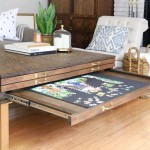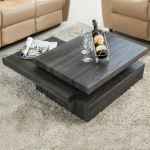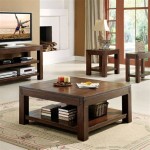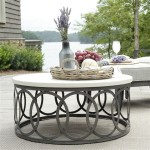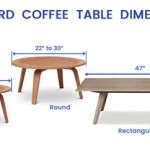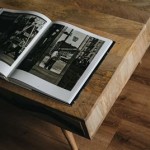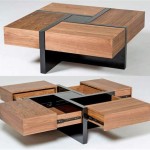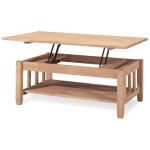Essential Aspects of Round Coffee Table Base DIY
Creating a round coffee table base DIY can be a rewarding project for any home enthusiast. By understanding the key aspects involved, you can achieve a sturdy and stylish base that complements your table design. Here's a comprehensive guide covering the essential elements of this DIY endeavor:
Choosing the Right Materials
The choice of materials determines the strength and durability of your base. Consider using solid wood such as oak, maple, or walnut for a classic and sturdy look. Metal tubes or pipes, like iron or aluminum, offer a modern and industrial aesthetic while providing ample support. Choose materials based on their suitability for your desired table style and your woodworking capabilities.
Cutting and Shaping the Legs
The legs of the coffee table base define its overall shape. Start by carefully measuring and marking the leg lengths and angles. Use a saw to cut the legs to the desired dimensions. If the legs require shaping or curves, use a router or sanding block to achieve the desired profile. Ensure precision in cutting and shaping to create uniform and well-matched legs.
Creating the Base Framework
The base framework connects the legs and establishes the table's footprint. Determine the size and shape of the base and cut the appropriate pieces of material. Assemble the legs to the base using metal brackets, screws, or glue. Ensure the joints are strong and secure to prevent any wobbling or instability.
Finishing Touches
After assembling the base, give it a polished look. Sand any rough edges or imperfections for a smooth surface. Apply a sealant or varnish to protect the wood or metal from stains and scratches. Consider adding additional decorative elements such as trim, molding, or metal accents to enhance the aesthetics of the base.
Leveling and Stability
A stable coffee table base is essential for preventing wobbling or uneven surfaces. Use a level to check the base and adjust the legs as needed to ensure it stands balanced on all four points. Consider adding adjustable feet or glides to the bottom of the legs for additional stability and to accommodate uneven floors.
Safety Considerations
When working with tools and materials, safety is paramount. Wear appropriate safety gear, including gloves and goggles. Use sharp tools carefully and ensure all cuts and assembly are done with precision. Ensure the materials used are non-toxic and suitable for indoor use.
By following these essential aspects, you can create a sturdy, stylish, and functional round coffee table base that will elevate your living space. Remember, the beauty of DIY lies in the customization and creativity you can infuse into your projects, so don't hesitate to experiment and explore your design ideas.

More Like Home Round Coffee Tables 4 Easy To Build Styles Day 10

Diy Coffee Table Easy X Base With Round Top

More Like Home Round Coffee Tables 4 Easy To Build Styles Day 10

More Like Home Round Coffee Tables 4 Easy To Build Styles Day 10

More Like Home Round Coffee Tables 4 Easy To Build Styles Day 10

More Like Home Round Coffee Tables 4 Easy To Build Styles Day 10

Diy Fluted Coffee Table Anna Mae Groves

15 Rounded Diy Coffee Tables

Diy Fluted Coffee Table

How To Build A Round Coffee Table Jaime Costiglio

